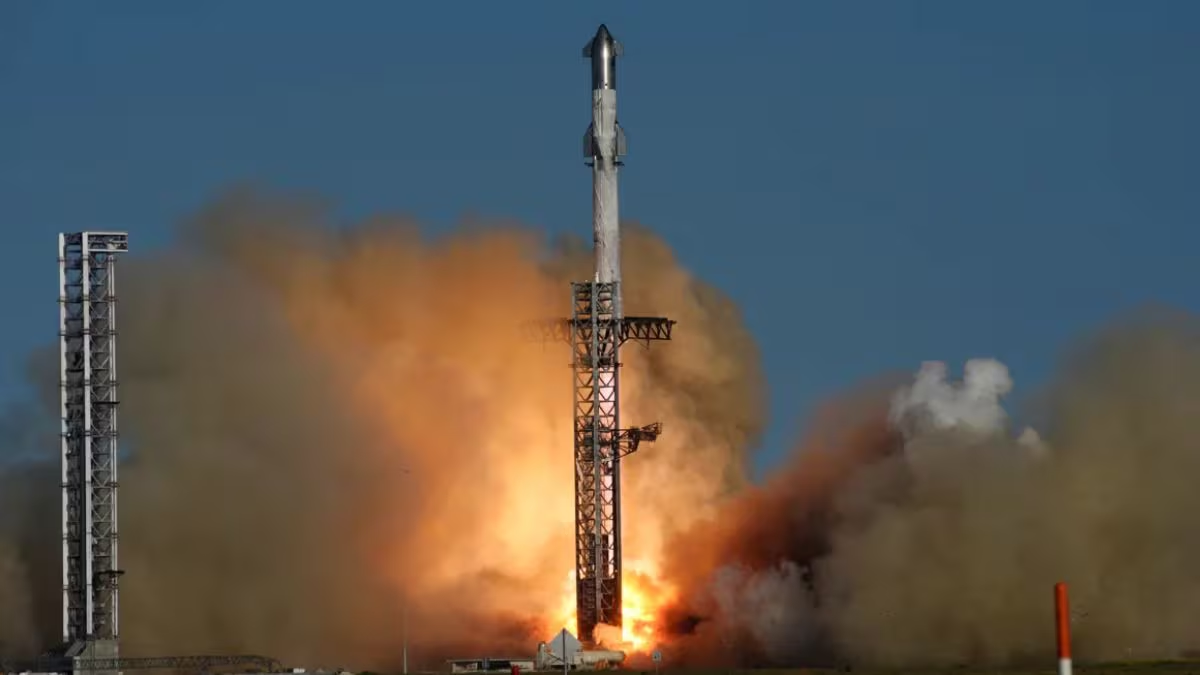
Introduction: A Rising Tide of Uncertainty in Space Collaboration
The partnership between private aerospace giants and government agencies has long been considered a pillar of modern space exploration. However, recent developments have cast a shadow over this collaborative spirit, as the US Air Force announced the suspension of its SpaceX rocket project. This decision has sparked widespread speculation and concern within the aerospace community and beyond. The controversy revolves around various factors, including safety concerns, contractual disagreements, and broader geopolitical considerations, all of which are contributing to an atmosphere of uncertainty about the future of space collaborations involving private firms like SpaceX.
Details of the Suspension: Why Did the US Air Force Decide to Halt the Project?
While official statements from the US Air Force remain somewhat reserved, it is evident that the suspension is rooted in multiple complex issues. According to reports, the decision arises from concerns regarding the reliability and safety of the rockets developed by SpaceX. This echoes earlier apprehensions shared by Elon Musk himself, who previously stated that certain ambitious plans might not fulfill expectations.
In a statement echoing skepticism, Musk indicated that some projects might not go as planned or may face delays, a sentiment that resonates with the current pause. The reason behind the suspension appears to be linked not only to technical hurdles encountered during testing phases but also to contractual disagreements and safety protocols. Officials have expressed the need for further evaluation and testing before reinstating with any joint launches, emphasizing the importance of space safety standards.
The Controversial Factors Leading to Suspension
Safety and Reliability Concerns
One of the key issues fueling the suspension is the **perception of safety risks associated with SpaceX’s rockets**. While SpaceX has achieved significant milestones, including successful satellite deployments and crewed missions, the government remains cautious about the consistency and security of these launches for critical military operations. This heightened vigilance has led to the US Air Force adopting a more cautious stance, scrutinizing the technical and safety parameters of SpaceX’s launch vehicles more rigorously.
Technical and Performance Issues
Recent test flights have reportedly revealed some inconsistencies in rocket performance, prompting concerns about reliability during high-stakes military missions. Although Musk has expressed confidence in his company’s capabilities, the US Air Force is prioritizing risk mitigation, especially considering the strategic importance of national security payloads.
Contractual and Regulatory Disputes
In addition to technical issues, there are indications of contractual disputes between SpaceX and the US government. These disagreements may involve **cost overruns, scheduling delays**, and compliance with strict regulatory standards. Such issues have further complicated efforts to move forward with joint projects, leading to the decision to pause collaborations temporarily.
Political and Geopolitical Factors
The broader geopolitical context cannot be ignored. As space becomes a domain of increasing geopolitical contention, the US government is more cautious about relying heavily on private firms, especially in sensitive military operations. Some analysts suggest that the suspension might be a strategic move to reassess alliances and ensure national interests are protected amid mounting international tensions.
Implications for SpaceX and the Future of Commercial Space Launches
The suspension of the US Air Force project poses significant questions for SpaceX’s future plans and the broader role of private companies in military and governmental space missions. Elon Musk’s previous statements hinted that certain partnerships might not materialize or could face obstacles, and this current development underscores the challenging transition from commercial achievements to government contracts.
Although SpaceX remains a dominant player in the commercial launch industry — with numerous commercial contracts secured — the current controversy highlights the hurdles that private firms must overcome when integrating into national security infrastructure. The company’s reputation for innovation and cost-effectiveness might be challenged, and it could face increased scrutiny for future projects.
What Are Musk and Industry Experts Saying?
Elon Musk, ever candid about the challenges faced, has publicly remarked that some ambitions may **not go as planned**. He has emphasized the importance of **rigorous testing and safety measures**, acknowledging that rushing to meet deadlines in military projects could compromise safety. Musk’s stance reflects a broader industry debate: balancing innovation and rapid development with safety and reliability.
Industry insiders are divided on the impact of this suspension. Some argue it indicates a **necessary caution**, especially given the high stakes involved in military space lifts. Others see it as a temporary setback that will ultimately serve to improve safety standards and technical robustness. The key takeaway is that space ventures involving government agencies demand a different level of scrutiny compared to purely commercial endeavors.
Conclusion: A Turning Point in Space Collaboration
The suspension by the US Air Force isn’t necessarily the end of SpaceX’s ambitions with the military but serves as a reminder of the **complexities and risks involved in space collaboration**. Both the private sector and government agencies will need to navigate these challenges with vigilance, balancing innovation with safety concerns.
This episode could mark a pivotal moment in reshaping how public-private partnerships operate in the space sector, emphasizing meticulous testing, transparent communication, and strategic patience. As technology advances, and as firms like SpaceX continue to push the boundaries, lessons learned from these setbacks could pave the way for more resilient and secure space missions in the future.
Final Thoughts
While the recent suspension raises questions, it also underscores the importance of prioritizing safety and reliability over rapid progress — particularly for projects on the cutting edge of technology and national security. The relationship between the US government and private aerospace companies remains crucial, and moments like these serve as crucial checkpoints to ensure future success and sustainability in space endeavors.
As Elon Musk and other industry leaders continue to innovate, challenges like these emphasize the importance of perseverance, due diligence, and collaboration to unlock the full potential of space exploration.
For more updated news please keep visiting Prime News World.








